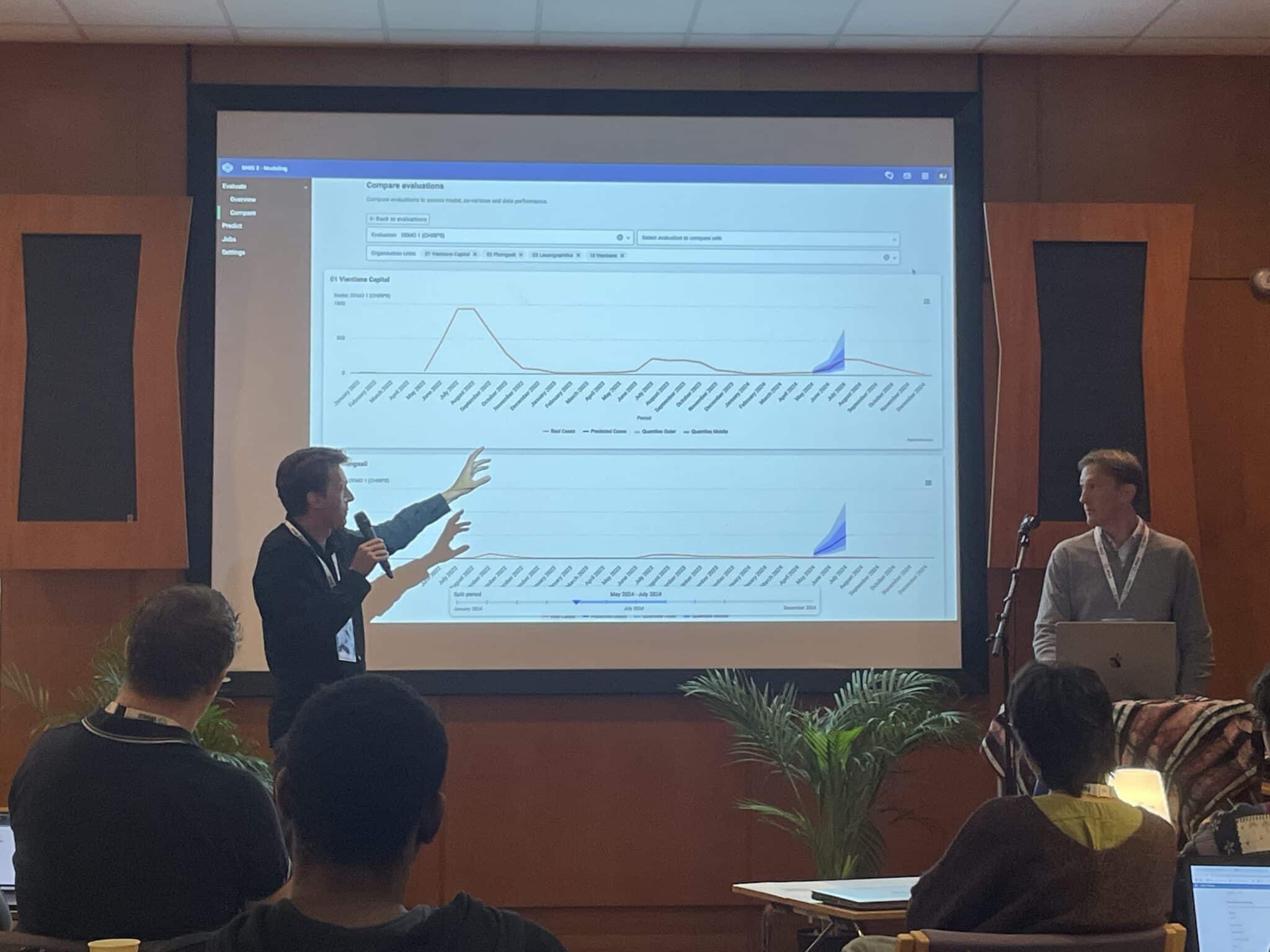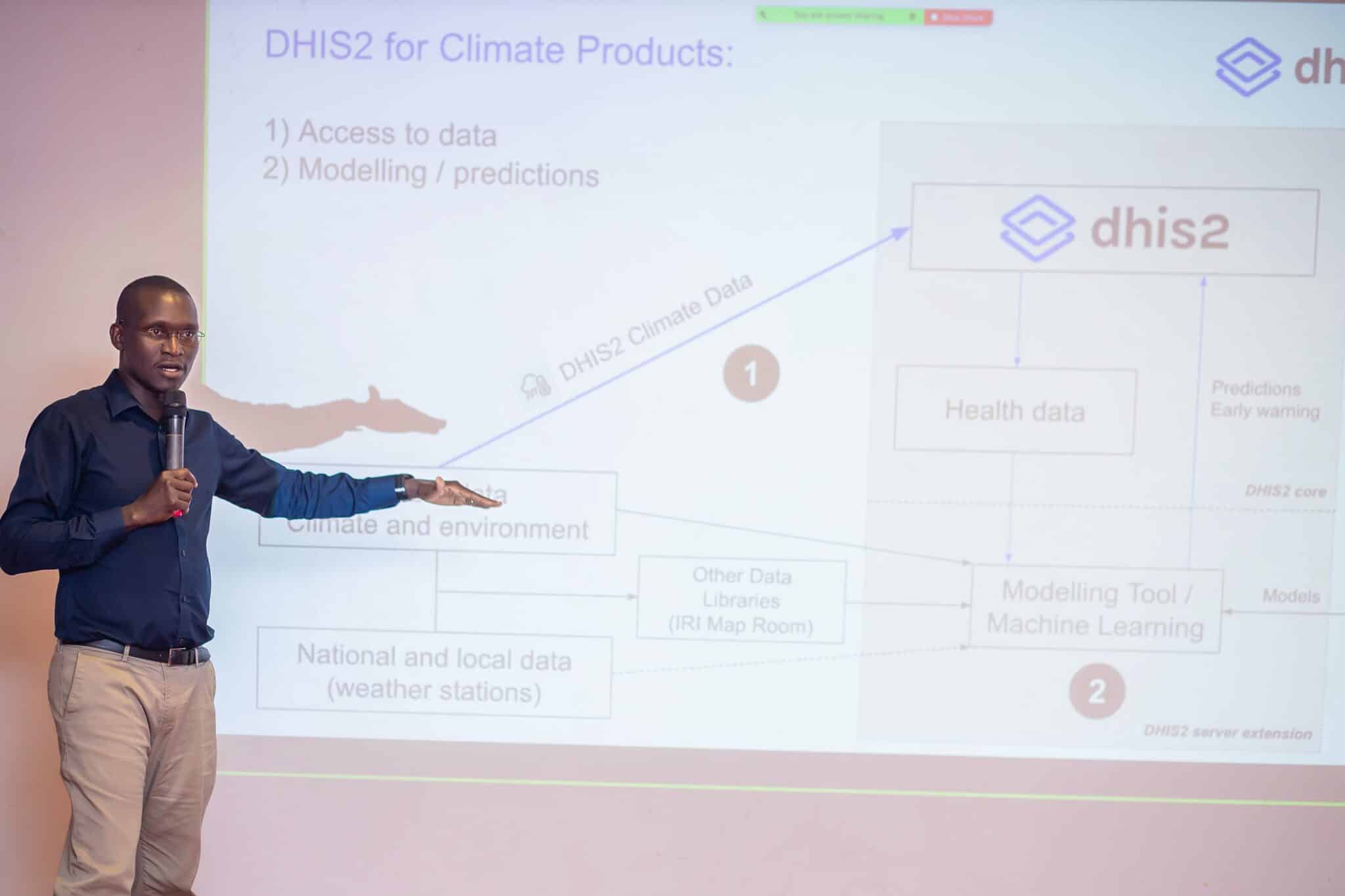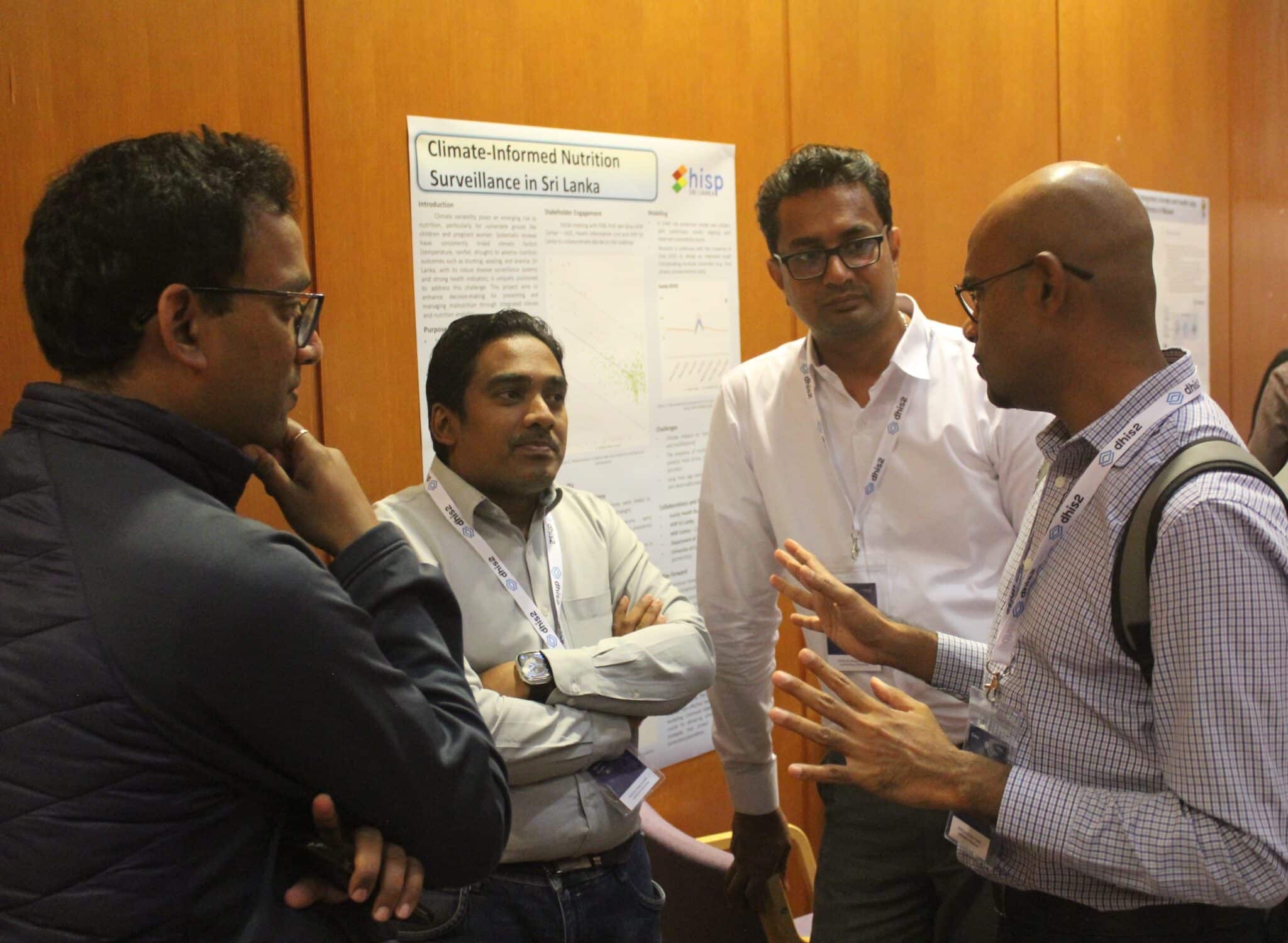HISP engages with global experts on Climate & Health
Members of the HISP Climate & Health team present DHIS2 innovations that support climate-resilient health systems at high-level G20 and WHO-WMO events
In September 2024, members of the HISP Climate & Health team were invited to join two high-level events that brought together experts and stakeholders from around the world to discuss solutions for addressing the impacts of climate change on human health.
Early in the month, Tiwonge Manda of the University of Malawi (part of the HISP network), presented virtually at a G20 Brazil 2024 Health Working Group event, sharing an update on DHIS2 for Climate & Health and details on the ongoing work in Malawi. This event was co-hosted by PATH/Digital Square, the Bill & Melinda Gates Foundation, The Global Fund, The Rockefeller Foundation, and the World Health Organization (WHO), with support from the Wellcome Trust, and focused on exploring how digital technologies and data can help build healthier, climate-resilient communities.
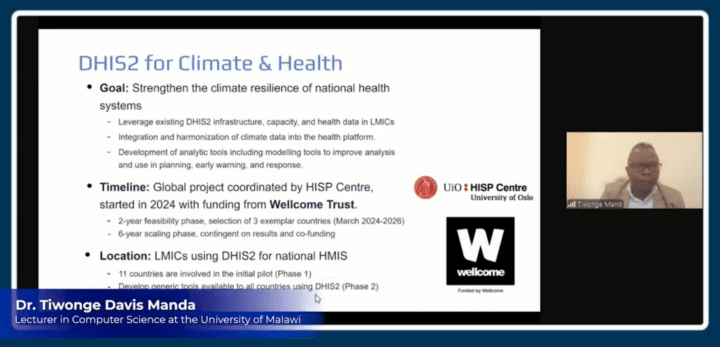
In her remarks during the event, Joy Shumake-Guillemot, leader of the WHO and World Meteorological Organization (WMO) Joint Office for Climate and Health, stated that “climate change not only changes health, but how we go about our core business of detecting diseases, monitoring health risks, preventing harm, and promoting healthy communities.”
Key takeaways from this meeting, as summarized by PATH, include how “open-source tools like DHIS2 are proving vital for integrating climate and health data, enabling real-time responses and more resilient health systems,” and that “transformative investments in digital public infrastructure, along with global cooperation, will be essential to enact meaningful change and protect against further climate-related health challenges.”
Later in September, the HISP Centre at the University of Oslo (UiO) contributed several in-person and virtual participants to an event at WHO headquarters in Geneva co-hosted by the WHO, the WMO, the Rockefeller Foundation and the Wellcome Trust. This event brought together technical partners, researchers, funders, and national health ministry representatives with the aim of advancing action toward the “development of scalable, reliable, interoperable systems for integrated climate-informed health monitoring and support.”
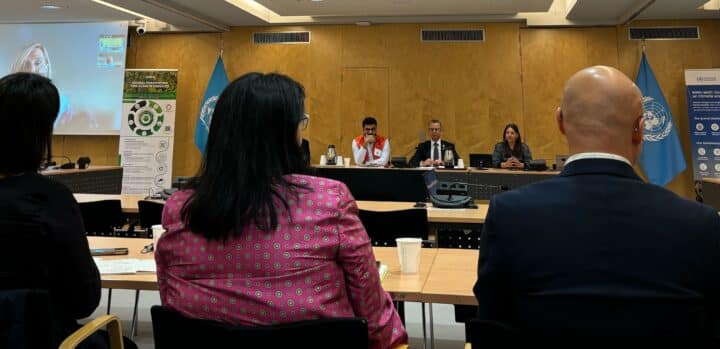
The workshop resulted in a draft three-year action agenda for integrated climate and health data that is informed by several key learnings from discussions during this meeting. These include a recognition of the huge increase in demand for data and digital tools to assess and respond to climate-related health risks, but a corresponding gap in tools and guidance, and a need for strategic investment to advance these initiatives, particularly in low- and middle-income countries. The group acknowledged the need for collaboration and the value of building on existing frameworks and platforms, while also being open to new innovations—but avoiding “ad hoc” pilot projects in favor of “sustainably funded, interoperable data systems that provide trusted information for decision-makers on a routine basis.”
DHIS2 was presented during the meeting as an example of an established digital platform that is already used in more than 80 countries for routine health data management and decision making, and as a platform for innovation that can support new climate and health approaches through integration of weather and environmental data and predictive modeling tools.
HISP is honored to have been invited to participate in these events, and we look forward to continuing to work with global and national partners to develop and deploy innovative solutions that help countries respond to the health impacts of climate change. Learn more about our ongoing work on the DHIS2 for Climate & Health webpage.
